- Home Page
- Company Profile
-
Our Products
- Tomato Ketchup
- Canned Tomato Paste
- Yoli Tomato Paste 70g and 210g
- Double Concentrated Canned Tomato Paste 850g Tins
- Canned Sour Tomato Paste 0.8 kg
- Tinned Tomato Paste
- 400g Canned Tomato Paste
- 2.2 kg Canned Tomato Paste
- 210g Canned Tomato Paste
- Canned Tomato Concentrate
- 800g Canned Tomato Paste
- 50g Canned Tomato Paste
- 70g Canned Tomato Paste
- TMT Tomato Paste
- 4.5kg Tomato Paste
- 70g Tomato Paste Sachet
- Organic 800 G Canned Tomato Paste
- Tomato Puree-Double Concentration
- Fine Tom Tomato Paste
- 850g Fine Tom Canned Tomato Paste
- Aseptic 2200g Tomato Paste
- Fine Tom Tomato Paste 70g
- Canned Fine Tom Tomato Paste 210g
- Tomato Paste 400g
- Tomato Paste 800g
- Tomato Paste 830g
- Tomato Paste 850g
- Tomato Paste 2200g
- Tomato Paste 4500g
- Factory Halal 800g 850g12tins Tomato Paste Brix 28-30% Canned Tomato Paste for Europe
- Halal Canned Tomato Paste 800g/850g (Brix 2830%) 12 Tins
- Hot Selling 800g12tins New Fresh High Quality Tin Tomato Paste
- Wholesale Price OEM Brand Customized Double Concentrate Canned 70g Brix 28%-30% Tomato Paste
- 4500gTomato Paste to Restaurant Big size Tomato Paste China supplier
- Restaurant halal tomato paste bulk price 400g choice high quality canned organic tomato paste for af
- Factroy Direct Sale 28-30% Brix 2200g Canned Tomato Paste with OEM Label
- 210g canned tomato paste with TMT brand
- Tomato Paste
- 56g Vego Tomato Paste
- Sachet Tomato Paste
- 2200g Yoli Tomato Paste
- 830g TMT Canned Tomato Paste
- Pouch Tomato Paste
- 1000g Tomato Paste
- 70g Standing Sachet Tomato Paste
- Nafdac Tomato Paste
- Yoli Brand Canned Tomato Paste
- Drum Tomato Paste 70g-4.5kg
- 4.5kg Tomato Concentrate
- 198g Tomato Paste
- 400g Canned Safa Tomato Paste
- Aseptic Tomato Paste
- Drum Fresh Tomato Paste
- Tomato Paste 50g
- Tomato Paste 56g
- Hebei Tomato Paste
- Seasoning Cube 10g
- Tomato Powder
- Bouillon Cubes
- Shrimp Bouillon Cube
- Bouillon Cube 10g - 100g
- Chicken Bouillon Cube
- Shrimp Crevette Bouillon Cube
- Mushroom Seasoning Cube
- Halal Chicken Flavor Cube and Powder
- Chicken Seasoning Powder
- Seasoning Fungyue
- Chicken Flavoured Cube
- Nour Shrimp Cube
- Halal 10G Chicken Powder
- 4g Chicken Flavor Powder
- 10g Chicken Flavor Bouillon Cube
- Canned Fish
- Canned Mackerel
- Canned Sardine Fish
- Canned Tuna Fish Seafood
- 155g Canned Mackerel
- Canned Fish 125g
- Canned Fish 155g
- Canned Fish 425g
- Canned Mackerel In Brine Water
- 155g Canned Fish
- 125g Canned sardine in vegetable oil
- 155g Canned sardine in vegetable oil
- Canned Sardines in Vegetable Oil 155g
- 125g Canned sardine in vegetable oil
- Seasoning Cube And Seasoning Powder
- Starch
- Sachet Tomato Paste
- Drum Tomato Paste
- Seasoning Cube
- Seasoning Powder
- Trade Fairs
- Contact Us
Tomato Ketchup 340gm
Tomato Ketchup 340gm Specification
- Ingredients
- Tomato, Salt, Wate
- Preservation Process
- Salt
- Additives
- No
- Weight
- 340 Grams (g)
- Shelf Life
- 2 Years
- Feature
- Good Quality
Tomato Ketchup 340gm Trade Information
- Minimum Order Quantity
- 10 Pieces
- Delivery Time
- 30-40 Days
- Sample Policy
- Free samples are available
- Certifications
- HACC, ISO , HALAL
About Tomato Ketchup 340gm
Tomato ketchup, often simply referred to as ketchup, is a popular condiment made from tomatoes, vinegar, sweeteners, and various seasonings. It is commonly used as a topping for foods such as burgers, hot dogs, fries, and sandwiches. Here's a general overview of tomato ketchup:
Ingredients:
- Tomatoes: Tomato ketchup is primarily made from tomatoes. Tomato paste or puree is often used.
- Vinegar: Provides acidity and helps with preservation.
- Sweeteners: Sugar or high-fructose corn syrup is added to give ketchup its characteristic sweetness.
- Salt: Enhances flavor and acts as a preservative.
- Spices and Seasonings: Common additions include onion powder, garlic powder, mustard, cinnamon, cloves, and other spices for flavor complexity.
Production Process:
- Preparation: Tomatoes are harvested and cleaned. They are then usually peeled and crushed to obtain a thick tomato pulp or puree.
- Cooking: The tomato puree is cooked to achieve the desired consistency and to enhance the flavor. This step also helps in reducing moisture content.
- Addition of Ingredients: Vinegar, sweeteners, salt, and spices are added during the cooking process.
- Straining: The mixture is often strained to remove seeds and achieve a smoother texture.
- Cooling and Bottling: The ketchup is cooled and then packaged into bottles or other containers for distribution.
Varieties:
- While traditional tomato ketchup is the most common, there are numerous variations and specialty ketchups available. Some include organic ketchup, reduced-sugar ketchup, and spicy ketchup.
Usage
Ketchup is a versatile condiment and is widely used as a dip or topping for various foods, including:
- Burgers and sandwiches
- Hot dogs
- French fries
- Chicken nuggets
- Meatloaf
- Eggs (as in ketchup for scrambled eggs)
- Potatoes (as a base for dishes like baked potatoes)
Storage
- Tomato ketchup is often refrigerated after opening to prolong its shelf life. Unopened bottles can be stored in a cool, dark place.
Specification
|
Place of Origin |
Hebei, China |
|
Storage Type |
Avoid light |
|
Specification |
70g-4500g |
|
Shelf Life |
2 years |
|
Manufacturer |
Hebei tomato Industry Co.,Ltd |
|
Ingredients |
None |
|
Content |
tomato sauce |
|
Address |
Shijiazhuang |
|
Instruction for use |
ready-to-eat product |
|
Brand Name |
OEM/TMT/VEGO/GINNY |
|
Model Number |
70g-4500g |
|
Brix (%) |
28-30% |
|
Primary Ingredient |
Tomato |
|
Taste |
Sour and Sweet |
|
Weight (kg) |
0.8 kg |
|
Additives |
None |
|
Product name |
Canned Tomato Paste |
|
Ingredient |
100% Purity Tomato Paste |
|
Taste |
Sour |
|
Raw Material |
100% Fresh Ripe Tomatoes |
|
Keywords |
Hot Tomato Sauce |
|
Type |
Paste |
|
Packing |
Canned Tins |
|
Color |
Red |
|
Size |
70g--4.5kg |
|
MOQ |
1*20'FCL |
FAQ:
1. Is ketchup made only from tomatoes?
Ans: While tomatoes are the primary ingredient in ketchup, commercial varieties also contain vinegar, sweeteners, salt, and various spices for flavor.
2. How is ketchup different from tomato sauce?
Ans: Ketchup is usually a sweet and tangy condiment, while tomato sauce is a savory sauce often used in cooking, made from tomatoes and seasoned with herbs and spices.
3. Is ketchup healthy?
Ans: Ketchup contains vitamins from tomatoes, but it can also be high in sugar and salt. Some variations, like reduced-sugar or organic ketchup, offer healthier alternatives.
4. Can I make ketchup at home?
Ans: Yes, homemade ketchup is possible. Recipes often involve tomatoes, vinegar, sweeteners, and spices. Making it at home allows you to control the ingredients and sweetness level.
5. What is the shelf life of ketchup?
Ans: Unopened ketchup can typically last for a long time, often up to a year or more. Once opened, it's advisable to refrigerate and use it within a few months.
6. Does ketchup need to be refrigerated?
Ans: While unopened bottles can be stored in a cool, dark place, opened ketchup bottles should be refrigerated to maintain freshness and quality.
7. Why does ketchup sometimes come out watery?
Ans: Separation of liquid (often called "weeping") can occur due to temperature changes or storing the ketchup upside down. Stirring or shaking the bottle usually resolves this.
8. Are there alternatives for sugar in ketchup?
Ans: Some manufacturers offer sugar-free or reduced-sugar ketchup, often using alternative sweeteners like stevia or agave syrup.
9. Can ketchup be used as a base for other sauces?
Ans: Yes, ketchup can be a base for various sauces. Some people mix it with other ingredients to create unique barbecue sauces, cocktail sauces, or dipping sauces.
10. Is ketchup gluten-free?
Ans: Most commercially available ketchups are gluten-free, but it's always advisable to check the product label if you have gluten sensitivities.
11. What gives ketchup its red color?
Ans: The red color in ketchup comes from the tomatoes, particularly the pigment lycopene, which is responsible for the characteristic hue.
12. Can ketchup be used as a marinade?
Ans: Yes, ketchup can be used as a base for marinades, especially in barbecue recipes. Its sweet and tangy flavor complements grilled meats.
Pure and Natural Ingredients
This Tomato Ketchup contains only tomatoes, salt, and water, with absolutely no added preservatives or chemical additives. Its natural recipe offers an authentic and fresh flavor, making it ideal for health-conscious customers and those looking for a clean ingredient list in their condiments.
Long-Lasting Freshness
Thanks to salt-based preservation and careful packaging, the Tomato Ketchup boasts a shelf life of two years. This extended storage period is perfect for bulk purchases by restaurants, food manufacturers, and retailers who prioritize product longevity without compromising taste or safety.
FAQ's of Tomato Ketchup 340gm:
Q: How is this Tomato Ketchup preserved for a two-year shelf life?
A: The Tomato Ketchup is preserved using salt, a natural preservative, which helps maintain freshness and safety for up to two years without the need for chemical additives.Q: What are the main ingredients in the Tomato Ketchup 340gm?
A: The ketchup is made from high-quality tomatoes, salt, and water, with no artificial ingredients or additives included in the recipe.Q: When should I use the Tomato Ketchup after opening the bottle?
A: Once opened, it is best to use the ketchup within a few weeks to ensure optimal flavor, keeping it refrigerated for freshness.Q: Where is this Tomato Ketchup manufactured and distributed from?
A: This product is manufactured, supplied, exported, and distributed by reputable companies based in China.Q: What is the process for making this Tomato Ketchup unique?
A: The ketchup is made by blending ripe tomatoes with salt and water, employing salt as the key preservation method, and deliberately avoiding artificial additives.Q: How can I use Tomato Ketchup 340gm in my meals?
A: You can use this ketchup as a versatile condiment for dipping, drizzling over snacks, or adding to recipes for a tangy tomato flavor.Q: What are the benefits of choosing this additive-free Tomato Ketchup?
A: Choosing this ketchup ensures you enjoy a product made from pure ingredients that support a healthier diet, free from unnecessary chemicals and artificial additives.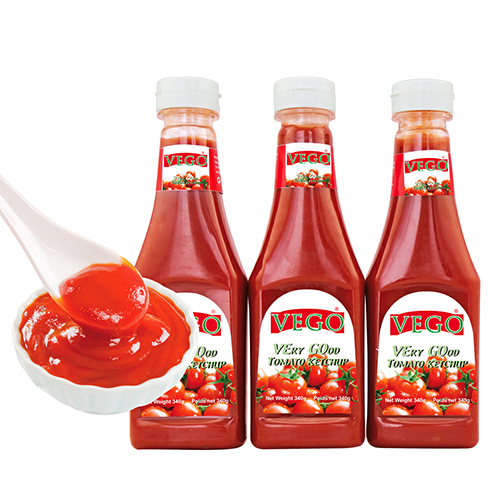
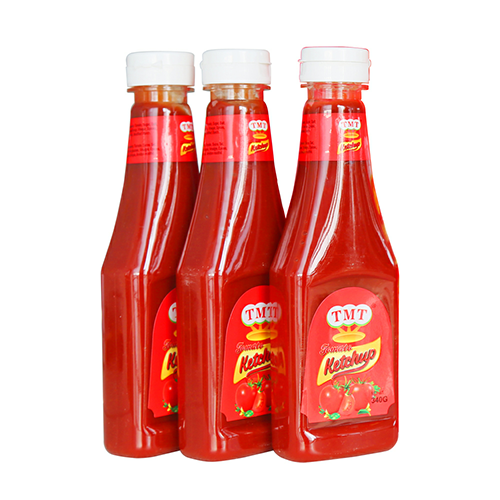
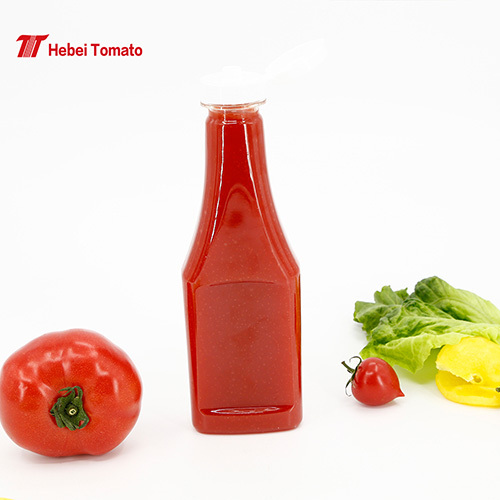
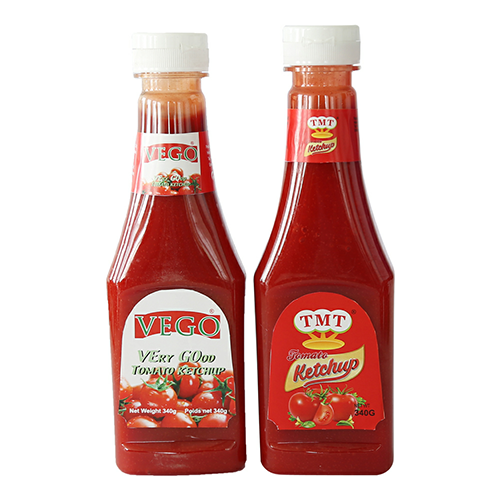
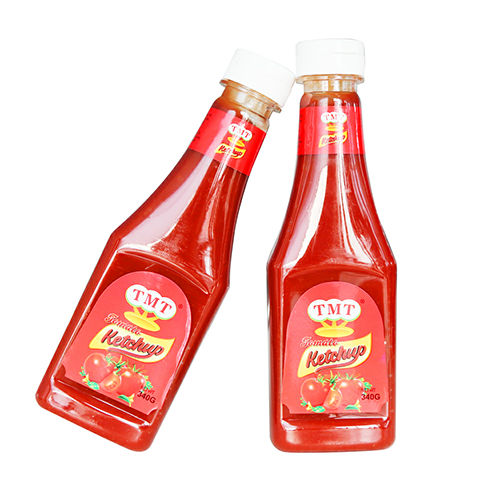
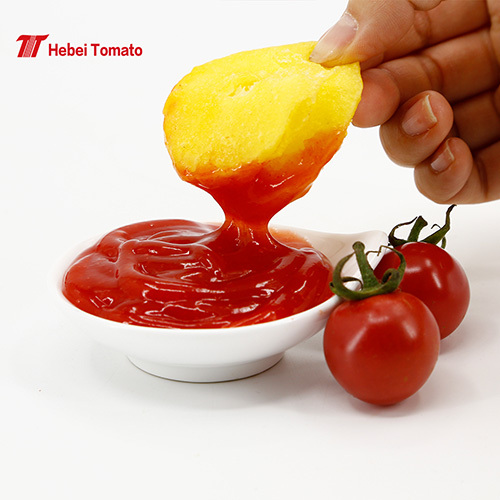
Tell us about your requirement

Price:
Quantity
Select Unit
- 50
- 100
- 200
- 250
- 500
- 1000+
Additional detail
Mobile number
Email
More Products in Tomato Ketchup Category
340gm Red Tomato Sauce
Minimum Order Quantity : 10 Packs
Shelf Life : 2 Years
Ingredients : Tomato, Salt, Wate
Additives : NO
Weight : 340 Grams (g)
Feature : Pure Natural Flavour
Vego Tomato Ketchup
Minimum Order Quantity : 2000 Boxes
Shelf Life : 2 Years
Ingredients : Tomato, Salt, Wate
Additives : None
Weight : 0.34 Kilograms (kg)
Feature : Pure Natural Flavour
Tomato Ketchup 5kg
Minimum Order Quantity : 10 Packs
Shelf Life : 2 Years
Ingredients : Tomato, Salt, Wate
Additives : No
Weight : 5 Kilograms (kg)
Feature : Good Pure Natural Flavour
Tomato Ketchup Sauce 340g Plastic Bottle
Minimum Order Quantity : 10 Packs
Shelf Life : 2 Years
Ingredients : Tomato, Salt, Wate
Additives : NO
Weight : 340 Grams (g)
Feature : Pure Natural Flavour


 English
English Spanish
Spanish French
French German
German Italian
Italian Chinese (Simplified)
Chinese (Simplified) Japanese
Japanese Korean
Korean Arabic
Arabic Portuguese
Portuguese
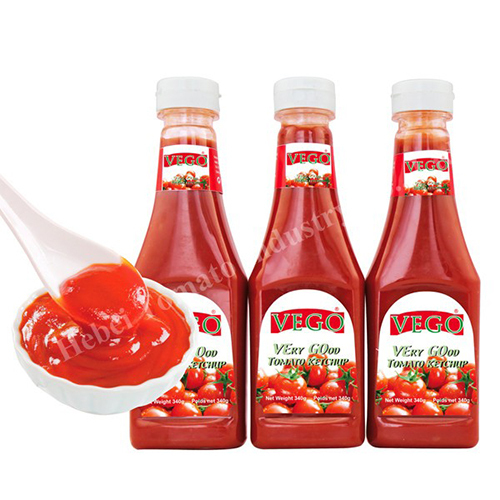
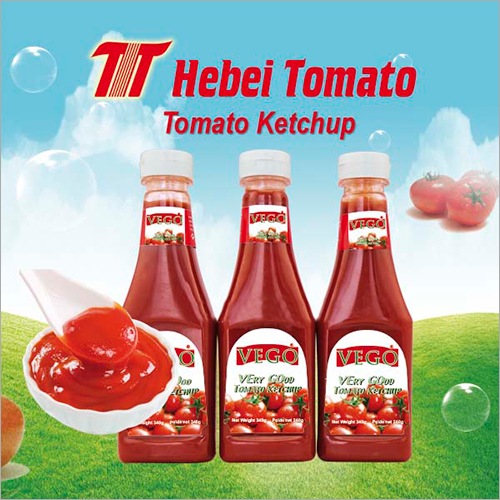
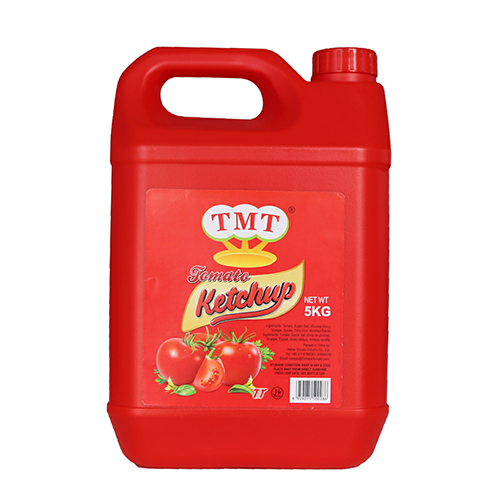
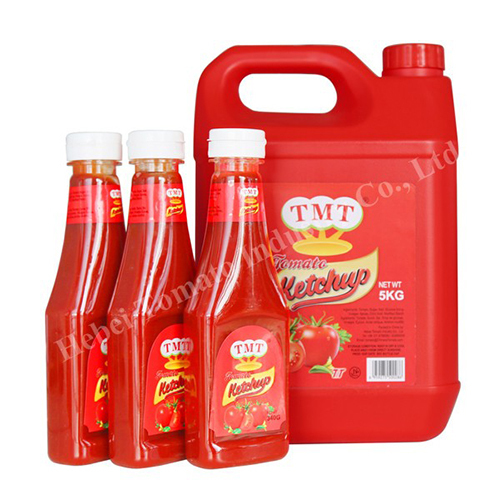
 Send Inquiry
Send Inquiry Call Me Free
Call Me Free
